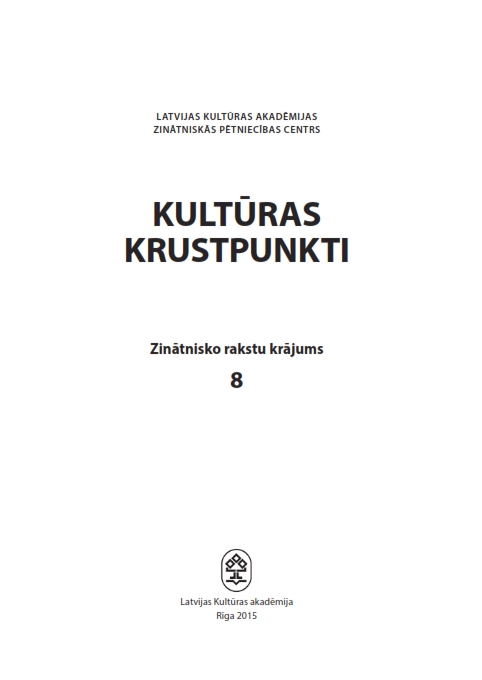ZEMGALIEŠU BIRUTAS REVOLUCIONĀR DZEJA
REVOLUTIONARY POETRY OF ZEMGALIEŠU BIRUTA
Author(s): Līvija BaumaneSubject(s): Cultural history, Poetry, History of ideas, Latvian Literature, Pre-WW I & WW I (1900 -1919)
Published by: Latvijas Kultūras akadēmija
Keywords: poetry; decadence; revolution; revolutionists; fin de siècle; 1905;
Summary/Abstract: The article offers an insight into the connection of the writer Zemgaliešu Biruta with revolutionary activity and references to this activity in different sources. Around the year 1905 Zemgaliešu Biruta was among the enthusiasts of the revolution. Her contribution was a translation of the essay of the Austrian social theorist and juridical expert Anton Menger “Anarchism” from German to Latvian. There are three main motifs in her creative work. One of them is her poetry texts inspired by the spirit of the time and marked by revolutionary enthusiasm. Her poetry embodies the spirit of protest, dissatisfaction with the ruling order, and an inclination to break free. The woman is frequently in the centre of the poetry: she is the one who expresses the spirit of protest; she is a passionate and brave fighter. Although there is no particular record of Zemgaliešu Biruta as a revolutionary who had been assigned to carry out secret tasks, there is a reason to believe that she had a close connection with the events of 1905–1906. It is known that the writer and the revolutionaries had strong ties: she helped to spread flyers and revolutionary literature, took part in secret gatherings and debates, she also left the territory of Latvia together with the revolutionaries when the government reaction against revolution took place. Zemgaliešu Biruta’s enigmatic course of life and her tragic demise is closely connected with the revolutionary atmosphere and events of the age: her contact with the revolutionaries served as a reason for her arrest. In a flat in Lielā Ņevas Street where Zemgaliešu Biruta also used to live, an explosive was found which was intended for the assassination of the governor general. Even though the real role of Zemgaliešu Biruta in revolutionary activity during the time of 1905–1906 cannot be fully established, and no direct written records have been preserved about her contribution to the revolutionary activities, the recollections book of the writer Jānis Akuraters “Dienu atspīdumi” (“Reflections of the Days”) allows me to draw a conclusion that she was one of the rare Latvian women revolutionaries of the time who had a deeper conviction about different ideas to transform the society, etc.
Journal: Culture Crossroads
- Issue Year: 8/2015
- Issue No: 2
- Page Range: 197-206
- Page Count: 10
- Language: Latvian

